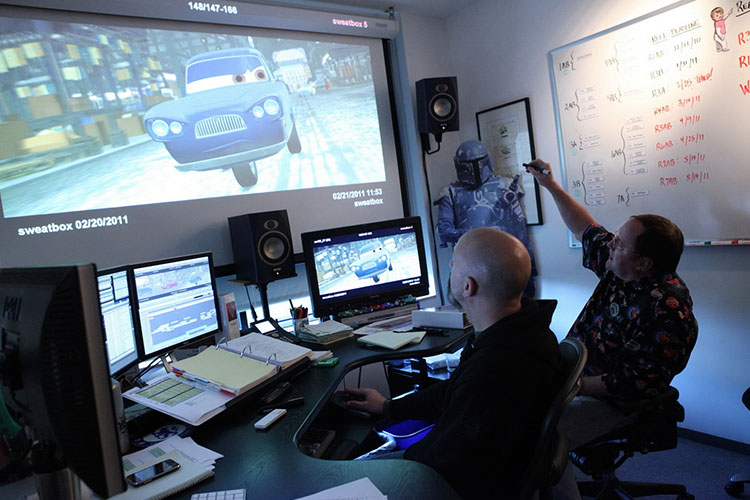How is AI automating the film industry?
At the Oscars, many of the films nominated for the prestigious award in the visual effects category use Machine Learning and Artificial Intelligence in their production. Whether it's making digital characters like Thanos and the Hulk in Avengers: Endgame or de-aging Robert De Niro and Al Pacino's characters in The Irishman, The success of big motion pictures has been attributed to artificial intelligence. Can AI, on the other hand, be used in other areas of filmmaking? Yes, it most certainly can. Other ways AI can be used in the film industry are mentioned below.
Netflix can’t wait to use A.I. to make movies
A.I. has already produced films, video games, fine art pieces, and novels with terrifyingly encouraging results.
AI has been used to tell the news and write business papers in the area of publishing; and, from script to final edit, AI has produced a (scary but compelling) short film in the field of filmmaking. AI-generated art is now on display in a mainstream gallery show in the field of visual art.
AI has demonstrated the ability to write a script and edit scenes. Netflix will almost certainly be using algorithms to source stories, use CGI, and edit films over the next 15 years.
Script writing
In Hollywood, using computers to write scripts is becoming more common. Machine learning and artificial intelligence algorithms can be used to write new scripts or to write synopses and character names for movies that have already been published. In such a scenario, a Machine Learning algorithm would be fed loads of data in the form of several movie scripts or is fed a book that needs to be adapted into a movie to generate a new script.
Movie editing
Film trailers are how the movie industry attracts audiences to theaters. As a result, studios are required to produce exciting and intriguing trailers. AI can be used to assist editors in the development of such movie trailers. IBM Watson, for example, was used to create a trailer for the film Morgan. The AI algorithm understands places with a lot of action or a lot of emotions and highlights them for a human editor to add to the final trailer.
Similarly, AI can aid editors in the editing of feature films. Due to its facial recognition technology, the AI algorithm can recognize main characters and assist human editors in sorting out such scenes.
Movie promotions
Promoting a film has become as critical as making the film itself. The marketing and promotion strategy used will determine whether a film succeeds or fails. AI can be used to promote movies and ensure that they are a box office success. The viewer base, the hype surrounding the film, and the actor's success around the world can all be analyzed using an AI algorithm. This allows AI to set up special screenings and meet-ups with fans at specific locations to further pique the audience's interest in the film.
Film studios may also sell their films to specific audiences based on their preferences. They can create customized, targeted advertising using an individual's public data from social media sites like Instagram and Facebook. If someone is following a certain actress on social media and is very engaged with her posts, for example, the production house will create targeted advertisements for them to promote their next film with the same actress.
Casting
The use of AI to cast actors is not limited to the pre-production stage as the technology can be used to digitally connect actors to movies. Thousands of data points describing the facial features of actors in different emotions can be fed into the algorithm. The data can then be used to overlay the actor's digital face on a body double to preserve the actor's natural expressions.
This technology can be used to film scenes of actors that have passed away. The technology may also be used to build digital characters or de-age actors who have been in front of the camera for a long time. This removes the need for many actors to play the same part at different periods of life, and it maintains the character's identity over time.
RELATED TAGS
CONTRIBUTOR


